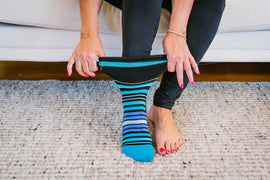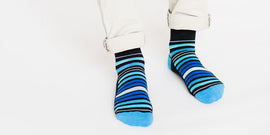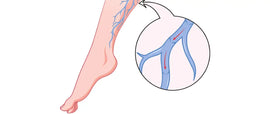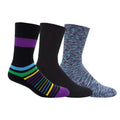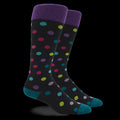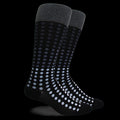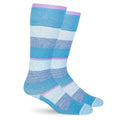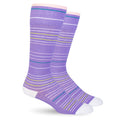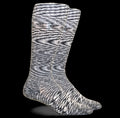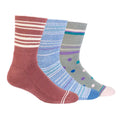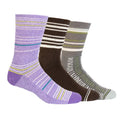Can Diabetics Eat Cherries?
Posted by SIMON LIM

You may be wondering if cherries are a good choice for you. Cherries are a delicious fruit that people of all ages can enjoy. But, can diabetics eat cherries?
In this blog post, we will discuss the health benefits of cherries for diabetics. We will also explore how to incorporate cherries into your diet if you have diabetes. So, read on to learn all about the health benefits of cherries! Learn how they can help improve your health.
How Nutritious are Cherries?
Cherries are a type of fruit that people often think of as being very sweet. While it's true that they can be quite sugary, they have a lower number of calories than many other fruits.
Cherries are also packed with healthy nutrients and bioactive ingredients. Here are some of the nutrients and substances that you'll find in cherries:
- Fiber
- Vitamin C
- Potassium
- Polyphenols
- Carotenoids
- Tryptophan
- Serotonin
- Melatonin
- Anthocyanins
- Vitamins A and C
Interestingly, there are two main types of cherries – sweet and tart. Bing is the most popular type of sweet cherry in the United States. In contrast, Montmorency is the most popular type of tart cherry.
Most fresh sweet cherries are eaten right away. But around 20-25% are canned, frozen, dried, brined, or turned into juice. In contrast, most tart cherries (97%) are used in cooking.
Cherries in a Diabetic Diet
Can diabetics eat cherries? Cherries are a nutritious fruit with plenty of health benefits. But people with diabetes need to be careful about how much they eat. Cherries contain carbohydrates. And too many carbs can cause blood sugar levels to spike.
According to the British Diabetic Association, 14 cherries should be safe to consume for people with diabetes. But make sure to check in with your doctor when trying new foods. Monitoring your blood sugar levels is also crucial.
With a bit of care and attention, people with diabetes can enjoy cherries as part of a healthy diet. Any fruit is a good choice, but remember to limit yourself to the recommended cherries per serving.
Another recommendation: Giving your feet extra support and comfort by wearing diabetic socks.

Carb Content of Cherries
Cherries are a lovely summer fruit that not only tastes great, but are also packed full of nutrients. However, they do contain carbohydrates and sugars that can impact your blood sugar levels.
Let’s take a look at the carb content of different types of cherries.
Fresh Cherries
Carb counts can vary depending on how ripe the cherries are. On average, there are about 25 grams of carbs in 1 cup of sweet cherries with the pits removed. If you have diabetes, monitoring your carb intake is essential to help control your symptoms.
Most people with diabetes can safely eat 14 cherries. But it's always a good idea to check your blood sugar levels after eating new food to see how your body reacts.
Canned Cherries
When it comes to canned cherries, most people are unaware of the high sugar content. A single cup of canned cherries in syrup can contain up to 60 grams of sugar. That's more than double the sugar in a can of soda!
While cherries are a healthy fruit, the added sugar can negate any benefits. If you're looking for a healthier option, opt for canned cherries packed in water or juice instead. You'll still get the delicious taste without all the extra sugar.
Glycemic Index of Cherries
When it comes to fresh cherries, it's essential to pay attention to the serving size. Cherries are generally considered to be low GI foods. But the glycemic index can increase if you eat too many at once. The good news is that a small serving of cherries is relatively easy to control.
One or two cherries can make a great snack, and a handful is usually enough to satisfy your sweet tooth. If you want to keep your glycemic index low, limiting yourself to small serving sizes is essential. With fresh cherries, a little goes a long way.
Benefits of Cherries with Diabetes
The potential benefits of cherries are worth exploring in these findings:
-
Researchers have long known that cherries are a nutritious fruit. However, a new study has found that they may be even better for your health. The study looked at polyphenols and vitamin C levels in sweet and tart cherries.
It is found that both sweet and tart cherries are rich in these nutrients. Cherries could potentially help to reduce the effects of inflammation and oxidative stress.
- One study found that cherry extract can help control blood sugar levels. The study concluded that cherries could help with diabetes management and reduce complications.
- Another research study revealed that consuming a mixture of sweet and sour cherries and an antioxidant cherry extract could help improve glycemic control. The study found that those given the cherry mixture had lower glucose and microalbumin levels than those who did not receive the treatment.
- A study also revealed that the antioxidant anthocyanins in cherries seem to target insulin sensitivity and increase it. This could potentially help treat diseases like diabetes.
Researchers are still looking into what role cherries might play in managing diabetes. These researches and other studies suggest that cherries may help keep glucose levels in a healthy range. This could lower the risk of diabetes and make its side effects less severe.

Takeaways
Cherries are a delectable and nutritious fruit that diabetics can enjoy. Fresh cherries are an excellent option for those looking for a low glycemic index snack. And while canned cherries can be high in sugar, they're still a healthier option than many other sugary snacks. However, paying attention to portion sizes and sugar content is essential.
If you want to add cherries to your diet, try including them in your breakfast or lunch. Add some to your oatmeal or yogurt in the morning, or enjoy a cherry salad at lunch. However you choose to eat them, cherries are a great addition to any healthy diet. So, can diabetics eat cherries? Yes, but be sure to enjoy them in moderation.
Lastly, talk to your doctor or a registered dietitian if you're unsure how to incorporate cherries into a diabetic diet. They can help you create a meal plan with cherries and other nutritious foods.
What you can also do to incorporate a healthier routine in your life is to wear diabetic socks. Toss out those uncomfortable socks that irritate your feet and welcome a more comfortable and enjoyable diabetic lifestyle with our diabetic socks for women and diabetic socks for men.
SHARE:





